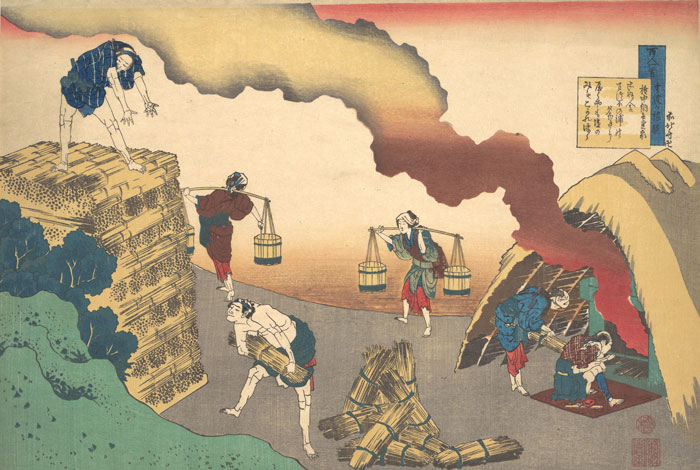
‘Hyakunin Isshu’ and the World of Japanese Medieval Poetry, a Public Lecture by Paul Atkins
“Hyakunin Isshu” (One Hundred Poems by One Hundred Poets) is the most famous collection of poetry in Japan. It has been read, discussed, recited, memorized, copied, illustrated, and parodied for centuries. It has been the subject of more than one series of manga and anime. Most people encounter it for the first time through a game, in which players listen, as a reader recites verses in random order, and compete to be the first to snatch the card bearing the text of the corresponding poem. Widely believed to have been compiled by the poet and courtier Fujiwara no Teika (1162-1241), Hyakunin Isshu has educated and delighted generations of readers as a model of poetic composition and an introduction to the fascinating world of waka, classical Japanese poetry.
In this talk, Paul Atkins will provide an introduction to the content, structure, and history of this very influential anthology, with special attention to its mysterious origins in medieval Japan. When did it first appear? How was it created? What was its original purpose? You will be surprised (perhaps even shocked!) by the answers he proposes.

Paul Atkins is professor of Japanese in the Department of Asian Languages and Literature at the University of Washington. He teaches and writes about the classical language, literature, and culture of Japan with an emphasis on the medieval era (ca. 1150-1600). The author of “Revealed Identity: The Noh Plays of Komparu Zenchiku” and “Teika: The Life and Works of a Japanese Poet,” and an award-winning translator, he holds a BA in English and an MA and PhD in Japanese from Stanford University.
Q: Why does knowing about the Hyakunin Isshu matter today, when there are so many other pressing societal problems?
A: “Hyakunin isshu” is a product of medieval Japan, a time and place that had much worse problems than those confronting us today. Warfare, disease, natural disasters, drought, and famine were par for the course. Japan experienced civil wars essentially nonstop between 1467 and 1600, beginning with the ten-year Ōnin War, which was largely fought in the streets of the magnificent capital, Kyoto, and destroyed it. Few people were literate and most eked out a difficult living from the land while a small group of men controlled the politics, society, and economy.
“Hyakunin isshu” is a capsule version of classical Japanese waka poetry, selected and arranged to be easy to understand. It introduces us into the ways of thinking of people who paid very close attention to the workings of nature and the ways of the human heart, when they were not coping with problems of their own. What they discovered is recorded in the lines of these poems.
In later eras, countless people have found a moment’s joy in playing the [Hyakunin Isshu] “karuta” game with friends and family. Others derived more long-lasting pleasure from the poems, since, once memorized, they could be recalled anytime and anywhere. They give us a lens through which to view the natural world, the human world, and ourselves.
Perhaps, by studying history, we can develop a broader perspective on the problems we face now, and by reading, contemplating, and even committing to heart these poems that have stood the test of time, we can live slightly deeper and richer lives than we would have otherwise. That is why “Hyakunin isshu” matters to me.
Time: 7:00 p.m.
Admission: Free and open to the public, by Zoom
Info: https://asian.washington.edu
Sponsored by Washin Kai – Friends of Classical Japanese at UW, and Department of Asian Languages and Literature, UW
Washin Kai was formed in 2018 to preserve and strengthen classical Japanese studies at UW. It is a group of volunteers from the Puget Sound community with strong ties to UW and to Japan. Most recently, it co-sponsored virtual “rakugo” storytelling, in English, by Katsura Sunshine (NAP, Oct. 9, 2020).







